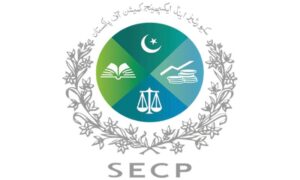Introduction:
Registering a renewable energy company in Pakistan involves a series of steps and compliance with specific regulations. This process allows entrepreneurs and investors to establish and operate businesses focused on renewable energy generation and contribute to the country’s sustainable development.
Definitions:
Renewable Energy: Renewable energy refers to energy obtained from natural resources that are constantly replenished, such as sunlight, wind, water, and biomass. Unlike fossil fuels, renewable energy sources are considered clean and sustainable.
Company Registration: Company registration involves the legal process of establishing a business entity. It typically includes registering the company’s name, incorporating the business, obtaining necessary licenses, and complying with regulatory requirements.
Process:
To register a renewable energy company in Pakistan, you can follow these steps:
Business Name Registration:
Choose a unique name for your company and register it with the Securities and Exchange Commission of Pakistan (SECP) using their online portal. Conduct a name search beforehand to ensure its availability.
Company Incorporation:
Prepare the necessary documents, including the Memorandum and Articles of Association, Form 1 (Declaration of Compliance), and Form 21 (Notice of Situation of Registered Office). Submit these documents along with the required fees to the SECP.
Obtain National Tax Number (NTN):
Register for a National Tax Number (NTN) with the Federal Board of Revenue (FBR) by submitting the NTN registration form and relevant documents. This step is necessary for tax purposes.
Register with the Board of Investment (BOI):
If you plan to avail investment incentives and facilities, such as tax exemptions and repatriation of profits, register your company with the BOI. Submit the required documents and complete the registration process.
Licensing and Approvals:
Renewable energy companies may require additional licenses and approvals based on the specific sector and project. For example, if you plan to set up a solar power project, you will need to obtain an Alternative Energy Development Board (AEDB) license.
Environmental Impact Assessment (EIA):
Conduct an Environmental Impact Assessment if your project is large-scale or has significant environmental implications. Submit the EIA report to the relevant environmental protection agency for approval.
Power Purchase Agreement (PPA):
Renewable energy companies typically enter into Power Purchase Agreements with the relevant power distribution company or authority. Consult with legal experts to draft and negotiate the terms of the agreement.
Compliance and Reporting:
Ensure compliance with regulatory requirements, including tax filings, financial reporting, and any sector-specific regulations. Maintain accurate records and submit the necessary reports to the respective authorities as per the prescribed timelines.
Examples:
Solar Power Company: A renewable energy company focused on solar power generation can install solar panels on rooftops or in open spaces to harness sunlight and convert it into electricity. Such companies can provide solar power solutions to residential, commercial, and industrial clients.
Wind Energy Company: A wind energy company can set up wind turbines in suitable locations to capture wind energy and convert it into electricity. These companies can establish wind farms or offer wind energy solutions to power grids or specific consumers.
Case Studies:
Sapphire Wind Power Company:
Sapphire Wind Power Company, based in Pakistan, specializes in developing wind power projects. They have successfully installed wind turbines in various locations, generating clean energy and contributing to the country’s renewable energy targets. Through proper registration and licensing, they have established a strong presence in the renewable energy sector.
SolarTech Solutions:
SolarTech Solutions is a Pakistani renewable energy company that focuses on solar power solutions. They provide customized solar panel installations for residential and commercial customers. By adhering to the registration process and obtaining necessary licenses, SolarTech Solutions has built a reputation for delivering reliable and sustainable solar energy solutions.
Conclusion:
Registering a renewable energy company in Pakistan involves several essential steps, including business name registration, company incorporation, obtaining necessary licenses and approvals, and compliance with regulatory requirements. By following these steps, entrepreneurs can establish and operate companies that contribute to the country’s renewable energy goals and promote sustainable development. Examples such as Sapphire Wind Power Company and SolarTech Solutions demonstrate the successful establishment and operation of renewable energy companies in Pakistan. As the country strives to increase its renewable energy capacity, registering a renewable energy company presents an opportunity for both economic growth and environmental preservation.



